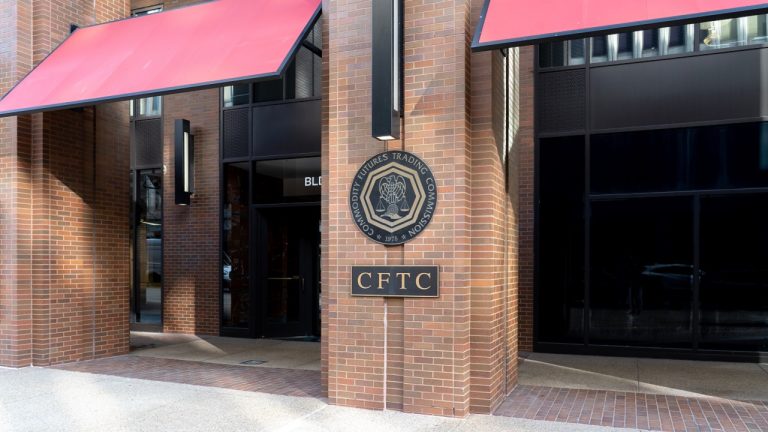CFTC Cracks Down on 3 Defi Platforms for Offering Illegal Derivatives
Publikováno: 9.9.2023
 The U.S. Commodity Futures Trading Commission (CFTC) has issued orders against the operators of three decentralized finance (defi) protocols. The regulator accused them of committing various violations of commodity laws including illegal trading of digital asset derivatives. U.S. Commodities Regulator Settles Charges Against Defi Protocols Opyn, Zeroex, Deridex The CFTC has taken action regarding three […]
The U.S. Commodity Futures Trading Commission (CFTC) has issued orders against the operators of three decentralized finance (defi) protocols. The regulator accused them of committing various violations of commodity laws including illegal trading of digital asset derivatives. U.S. Commodities Regulator Settles Charges Against Defi Protocols Opyn, Zeroex, Deridex The CFTC has taken action regarding three […]

The U.S. Commodity Futures Trading Commission (CFTC) has issued orders against the operators of three decentralized finance (defi) protocols. The regulator accused them of committing various violations of commodity laws including illegal trading of digital asset derivatives.
U.S. Commodities Regulator Settles Charges Against Defi Protocols Opyn, Zeroex, Deridex
The CFTC has taken action regarding three Delaware-registered companies doing business in the defi space — California-based Opyn and Zeroex as well as Deridex which is based in North Carolina. The Commission said it had issued orders filing and settling charges against them.
According to the announcement published on Thursday, Deridex and Opyn have been charged with failing to register as a swap execution facility (SEF) or designated contract market (DCM) and failing to register as a futures commission merchant (FCM).
The two entities also failed to adopt a customer identification program, as required of FCMs, while together with Zeroex, they were also charged with illegally offering leveraged and margined retail commodity transactions in digital assets.
The regulatory body explained that the crypto firms operated blockchain-based protocols and smart contracts, that the CFTC says functioned similarly to trading platforms, and “purported to offer users the ability to engage in transactions in a decentralized environment.”
The orders issued by the Commission require that Opyn, Zeroex, and Deridex pay civil monetary penalties of $250,000, $200,000, and $100,000, respectively. They are also expected to cease and desist from violating the Commodity Exchange Act (CEA) and CFTC regulations. Commenting on the charges, Director of Enforcement Ian McGinley was quoted as stating:
Somewhere along the way, defi operators got the idea that unlawful transactions become lawful when facilitated by smart contracts. They do not.
While recognizing the novel and complex nature of defi, the CFTC executive also emphasized that his department “will continue to evolve with it and aggressively pursue those who operate unregistered platforms that allow U.S. persons to trade digital asset derivatives.”
Besides detailing each case in its press release, the CFTC also acknowledged the defi firms’ “substantial cooperation” with its investigation that resulted in reduced penalties. The measures come amid an ongoing crackdown on the crypto sector in the U.S. in which the commodities regulator has been involved alongside the Securities and Exchange Commission (SEC). The CFTC made it clear that the probe is part of its continued “enforcement focus” in the defi space.
What are your thoughts on the charges against the three defi platforms? Let us know in the comments section below.